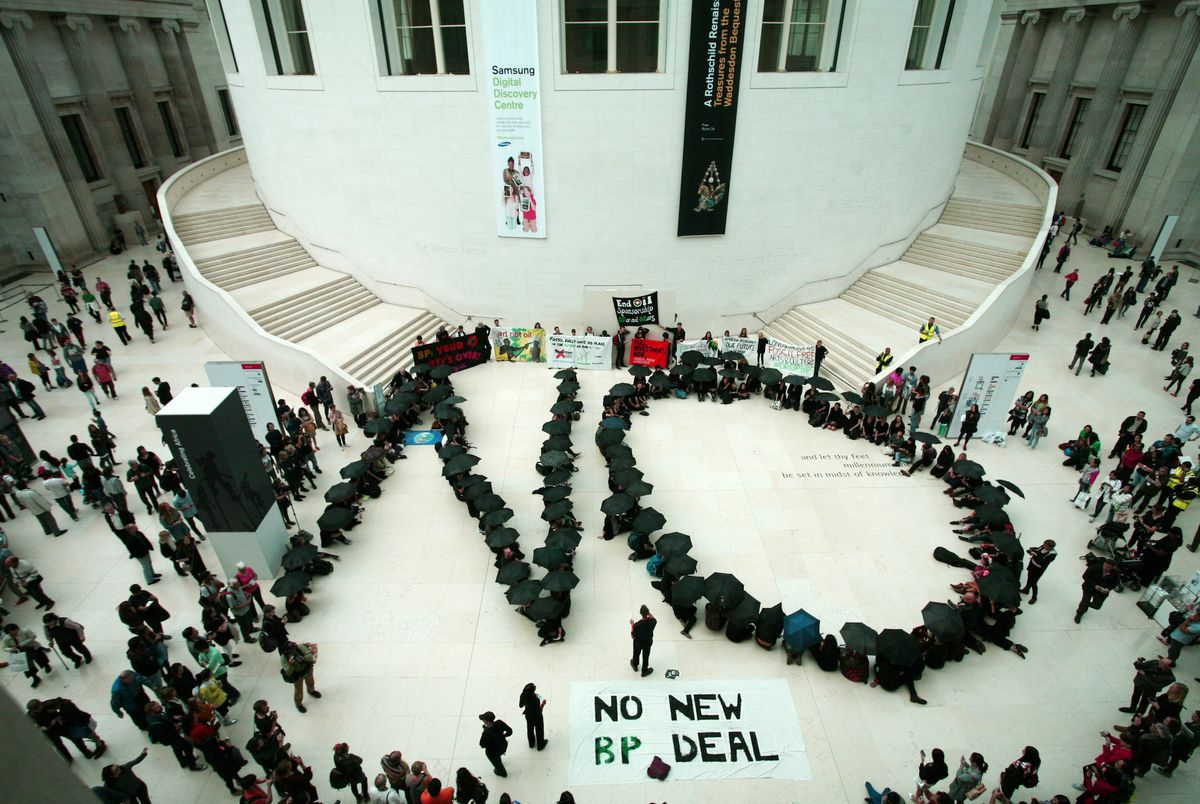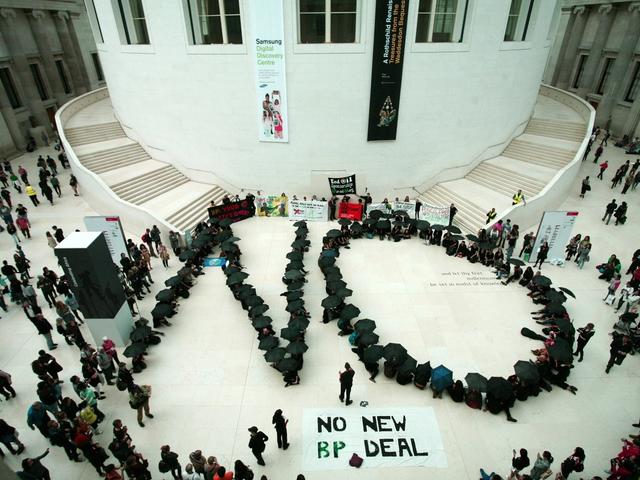The British Museum and BP (formerly British Petroleum), the multinational oil and gas giant headquartered in London, will cease their sponsorship agreement after 27 years.
The end of the partnership, first reported by The Guardian newspaper, comes after more than a decade of protests and creative disruptions at the museum by activist groups including BP or Not BP and Culture Unstained, which saw the agreement as a way for BP to “artwash” its historical and ongoing contributions to global warming.
A spokesperson for the British Museum described The Guardian's report as "inaccurate" and stated that the museum has "not confirmed we have ended our relationship with BP". The spokesperson added, "In times of reduced public funding, corporate sponsors like BP allow us to fulfil our mission to deliver unique learning experiences to our visitors. We have not ended our partnership with BP. BP is a valued long term supporter of the Museum and our current partnership runs until this year."
In 2016, BP announced that it was extending its partnership with the British Museum and three other institutions from 2018 to 2023. That agreement will not be extended or renewed beyond this year. According to information obtained by Culture Unstained through Freedom of Information requests, the final exhibition at the museum to be sponsored by BP was Hieroglyphs: Unlocking Ancient Egypt, which closed on 19 February 2023. The company now has until the end of 2023 to use any remaining “supporter benefits” accrued through the partnership.
“Despite the museum’s lack of a clear statement, this important move does gesture positively towards chair George Osborne’s stated aspirations to become a ‘net zero’ Museum, and the significant role for arts and cultural institutions in taking action for climate,” said Rodney Harrison, a professor at the University of Central London’s Institute of Archaeology, in a statement provided to Culture Unstained, referring to a 2 November 2022 comment by the museum’s board chair during a speech to trustees.
Harrison added: “The archaeology, museums and heritage community will welcome the end of this sponsorship deal with a company whose ongoing operations and lobbying on behalf of the fossil fuel industry is not only a threat to all of our planetary futures, but whose work also has had, and continues to have, a negative impact on cultural heritage globally.”
The British Museum is among the last visual and performing arts institutions in the UK to end its relationship with BP. In recent years—and often after sustained pressure from activists—organisations including the Tate, the National Portrait Gallery, National Galleries Scotland, the Royal Shakespeare Company and the Royal Opera House all opted to not renew their sponsorship agreements with BP or otherwise cut ties with the company. Among major institutions, only London’s Science Museum’s education academy still has a partnership with BP.
The end of BP and the British Museum's partnership comes after the energy giant has reported record profits ($28bn in 2022) while simultaneously backtracking on its commitment to reduce carbon emissions by 40% from 2019 levels by 2030. It has instead committed to a less ambitious reduction of 20% to 30%.
Climate activists’ creative protests urging the British Museum to end its affiliation with BP have taken many forms over the years, from a satiric proposal to drill for oil at Stonehenge last year to a 51-hour occupation of the museum's central courtyard in 2020 and a mythic battle between mermaids and a kraken in 2016.



